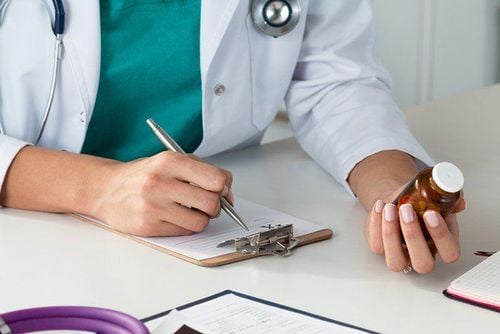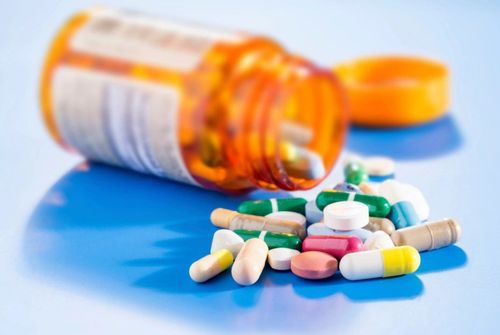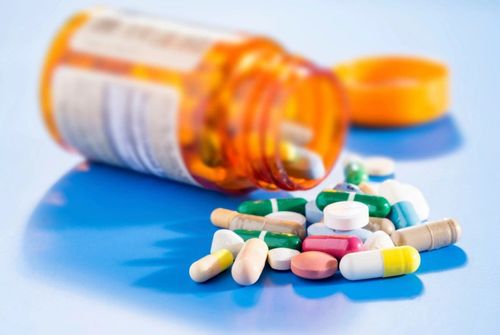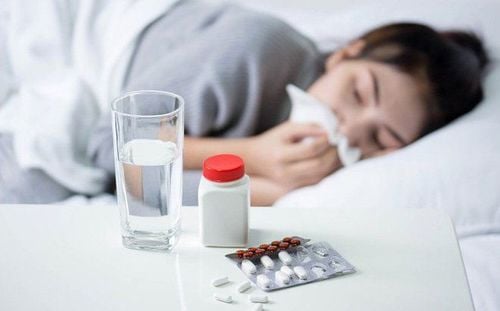This is an automatically translated article.
The article was written by Pharmacist Dinh Thi My Hanh - Faculty of Pharmacy - Vinmec Central Park International General HospitalBacteria live in the natural environment and are ubiquitous inside and outside of our bodies. Most bacteria are harmless and even helpful to humans, but some can cause infections, like strep throat. Antibiotics are medicines that fight bacterial infections in humans and animals by killing bacteria or making it difficult for them to grow and multiply.
The rational use of antibiotics is the best way to take care of your health. Here are a few things you can do to help you use antibiotics properly when you're sick, protect yourself from the harmful effects of unnecessary antibiotic use, and fight antibiotic resistance.
1. Only take antibiotics as prescribed
Antibiotics ONLY treat certain infections caused by bacteria, such as:
Sore throats Pertussis Urinary tract infections (UTIs) Antibiotics do NOT work on viruses, such as those viruses cause:
Colds and runny nose, even if the mucus is thick, yellow or green Most sore throats (except strep throat ) Flu Most colds like bronchitis Medicines antibiotics are also NOT necessary for some common bacterial infections, including:
Many sinus infections Some ear infections Taking antibiotics when they are not needed will not help the condition but their side effects can still be harmful on the body. So only your doctor can decide on the best treatment for you when sick.

Chỉ dùng thuốc kháng sinh theo chỉ định theo chỉ định của bác sĩ
2. Take antibiotics exactly as prescribed
Antibiotics are usually prescribed 1 to 4 times a day. Ideally, you should take the doses evenly spaced throughout the day and at the same times each day. This helps to maintain stable drug levels in your body.If your doctor decides that antibiotics are the best treatment when you are sick:
Take them exactly as prescribed. Do not share your antibiotics with others. Never keep an antibiotic you took in a previous course of treatment for the purpose of reusing it. Do not take antibiotics prescribed to others. This could reduce the quality of your own treatment, make you worse, or cause side effects. Consult with your doctor and pharmacist if you have any questions about your antibiotics or if you experience any side effects or allergic reactions while taking antibiotics.
3. Treatment when 1 dose is forgotten
In most cases, you should not double your next dose of antibiotics if you have missed a dose. Taking a double dose of an antibiotic increases your risk of other side effects.Take the missed dose as soon as you remember. If it is almost time for your next dose, skip the missed dose completely. Always refer to the manufacturer's information leaflet that comes with your antibiotic pack, as it provides information and advice specific to the antibiotic you are taking. The manufacturer's information leaflet will include the manufacturer's advice on what to do if you miss a dose.

Người bệnh không nên tự ý tăng liều khi đã quên một liều
4. Dealing with missed doses of medicine
Contact your doctor for advice if you have missed multiple doses of antibiotics or forgot to take them for more than 1 day. It is especially important to note that if you have missed more than one dose due to a side effect of a medication or a change in your medical condition, you should see your doctor right away.Always remember to take the full dose of antibiotics
If you find it difficult to remember when to take antibiotics, here are a few ways that can help you remember when to take them:Combine taking antibiotics with another daily activity, such as brushing your teeth or taking meals - but check first if your medicine needs to be taken before or after a meal After taking each dose, make a note in your diary or calendar Set an alarm to remind you when it's time to take your next dose Follow Using boxes with labeled compartments you can put your pills in helps remind you to take your antibiotics at specific times of the day or on specific days of the week. You should always take and complete the number of doses for a course of antibiotics, even if you see improvement. If you don't take the full dose or miss several doses, the infection can return and increase the risk of bacteria becoming resistant to antibiotics.
Please dial HOTLINE for more information or register for an appointment HERE. Download MyVinmec app to make appointments faster and to manage your bookings easily.
References: nhs.uk, cdc.gov












